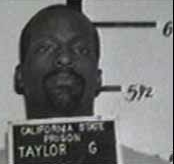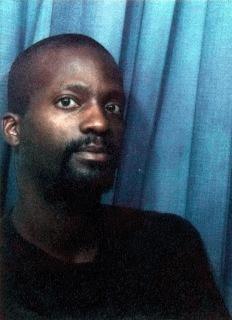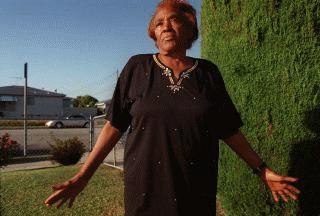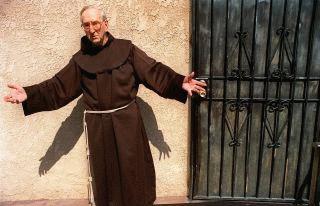
 | |
|
Lubomyr Prytulak Ukrainian Archive, www.ukar.org [Address] [Telephone] [Email] 11 December 2002 |
|
The appellate court's dissent came from Judge Earl Johnson, who compared Taylor's plight with that of Hugo's fictional character. Johnson lamented the fact that "a hungry, homeless man is sent away for 25 years to life for trying to break into a church so he could eat some food he thought the church would be glad for him to have."
Editorial, Honolulu Star-Bulletin, 25-Apr-1999 starbulletin.com/1999/04/28/editorial/editorials.html |
|
Jean Valjean was pronounced guilty. The terms of the Code were explicit. There occur formidable hours in our civilization; there are moments when the penal laws decree a shipwreck. What an ominous minute is that in which society draws back and consummates the irreparable abandonment of a sentient being! Jean Valjean was condemned to five years in the galleys.
Victor Hugo, Les Misérables, translated by Isabel F. Hapgood, Collins, London and Glasgow, first published 1862, this edition 1955, p. 110. |
 Gregory Taylor in an undated photograph, convicted by a Los Angeles Superior Court jury of trying to break into St. Joseph's Catholic Church kitchen in July 1997, and sentenced by Judge James R. Dunn to 25 years to life. |
|
|
The arresting police officer later testified that Taylor said he "was trying to go in the kitchen to get something to eat." Taylor continues to deny the whole thing. "I would never go into that place to steal," he says, adding that the break-in was concocted by one of the guards who had argued with him over sleeping in the church alcove.
Martha Bellisle, 25 years to life for petty crime: California's 'three strikes' law imposes harsh penalty on man caught trying to steal food www.s-t.com/daily/07-99/07-18-99/a02wn007.htm |
|
He was convicted of burglary, for using a board to reach inside the church
in an attempt to commit theft.
Bob Egelko, Court gives hope to man serving life for food theft, 22-Jul-1999 aspin.asu.edu/hpn/archives/Jul99/0095.html |
|
Taylor, 37, was arrested in July 1997 after being caught trying to pry open a screen over the kitchen door of McCoy's church in July 1997.
Jennifer Auther, Homeless man's case sparks debate over 3-strikes law, CNN.COM, 29-Apr-1999 www.cnn.com/US/9904/29/food.thief.3strikes |
 Lois Taylor, Gregory Taylor's mother, talks to a reporter outside her Los Angeles home about her son's conviction and stiff sentence. |
 Father Allan McCoy, a Franciscan priest at St. Joseph's Catholic Church, expresses incredulity at Gregory Taylor's conviction. |
|
|
This analysis focuses on the impact of the "three strikes" law in
California because that state stands alone in the breadth of its policy.
Nationally half the states have passed some form of "three strikes" legislation,
but only a handful have convicted more than a hundred individuals using the
statute. As of mid-1998, only California (40,511), Georgia (942), South
Carolina (825), Nevada (304), Washington (121) and Florida (116) had been
using the "three strikes" legislation to any significant extent.
Ryan S. King and Marc Mauer, Aging Behind Bars: "Three Strikes" Seven Years Later, The Sentencing Project www.sentencingproject.org/news/3strikesnew.pdf |
|
"California is unique in using a three-strikes, mandatory, indiscriminate sentence against non-violent offenders," said Stuart Cox of Families to Amend California's Three Strikes. A recent study found that of the 25 states with a three-strikes law, only California and Georgia enforce theirs frequently. All of the states with three-strikes laws, other than California, specify that a defendant's crime be a violent or serious felony to qualify as a third strike. Jennifer Auther, Homeless man's case sparks debate over 3-strikes law, CNN.COM, 29-Apr-1999 www.cnn.com/US/9904/29/food.thief.3strikes |
|
California's law is considered the toughest in the nation because the third strike can be a low-level crime such as petty theft, which is prosecuted as a felony for some repeat offenders. For [Leandro] Andrade and [Gary] Ewing the third strike was what prosecutors call a "wobbler," meaning it could be charged as either a felony or a misdemeanor. In both cases prosecutors sought the more serious charge. California prosecutors said Tuesday that their state prisons held 344 inmates whose third strike was a property crime. More than 7,000 inmates in California prisons are serving three-strikes sentences. Shannon McCaffrey, High court hears "3 strikes" case, Bradenton Herald, 06-Nov-2002 www.bradenton.com/mld/bradentonherald/4452843.htm |
| County |
Total Strike Convictions Per 100,000 People |
Violent Crime Rate |
| San Francisco | 6.2 | 1,295 |
| Los Angeles | 51.3 | 1,262 |
| Fresno | 35.6 | 1,018 |
| Alameda | 9.6 | 1,017 |
| Stanislaus | 36.1 | 875 |
| Madera | 26.3 | 818 |
| Riverside | 32.8 | 815 |
| San Joaquin | 49.3 | 811 |
| Solano | 11.0 | 806 |
| San Bernardino | 34.7 | 793 |
| Sacramento | 45.6 | 789 |
| Shasta | 40.8 | 761 |
| Santa Cruz | 11.5 | 728 |
| San Diego | 39.9 | 703 |
| Kern | 51.0 | 661 |
| Merced | 28.7 | 640 |
| Imperial | 16.3 | 635 |
| Contra Costa | 22.6 | 616 |
| Santa Clara | 30.4 | 547 |
| Orange | 24.6 | 453 |
| Ventura | 19.9 | 406 |
| San Mateo | 22.2 | 347 |
This chart calculates the violent crime rate based on the California Crime Index and the FBI Crime Index including the crimes of murder, forcible rape, robbery, and aggravated assault per 100,000 people. Mighty Casey has struck out: Why the California 3-Strikes Law is not a positive social policy, Figure 2 presenting 1996 data at www.w3.org/TR/REC-html40 | ||
|
Superior Court trial Judge James Dunn had also refused to use his authority to disregard one or both of Taylor's past convictions, which would have lessened his sentence.
Jennifer Auther, Homeless man's case sparks debate over 3-strikes law, CNN.COM, 29-Apr-1999 www.cnn.com/US/9904/29/food.thief.3strikes |
|
Although some might believe that public pressure keeps judges and prosecutors from using their discretion regularly, statistics indicate that discretion in three strike cases is invoked frequently and consistently. A 1998 survey of California District Attorneys revealed that prosecutors in urban jurisdictions use discretion in approximately 20-40 percent of eligible cases; nearly 75 percent of the respondents indicated that they would use discretion in cases involving a minor current offense. An evaluation of judicial discretion exercised in San Diego County found that judges exercised discretion in 29 percent of eligible three strike cases. They were also 100 percent more likely to use discretion if the triggering offense was minor. Moreover, judges were more likely to strike a prior strike if the defendant had no history of violence and no history of weapons possession or weapons use.
Jennifer Walsh, Three strikes safeguard in California can save the law, San Mateo County Times, 03-Nov-2002 www.sanmateocountytimes.com/Stories/0,1413,87~2457~967801,00.html |